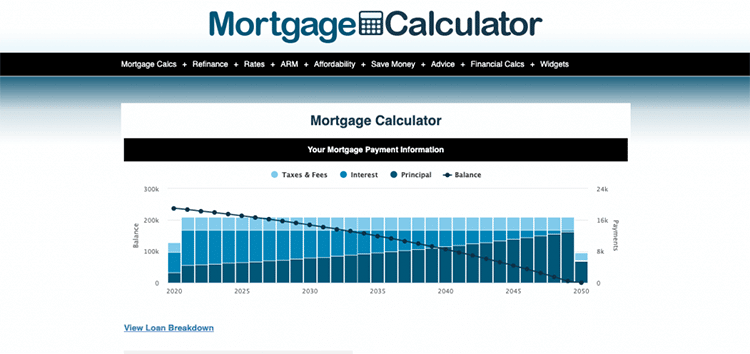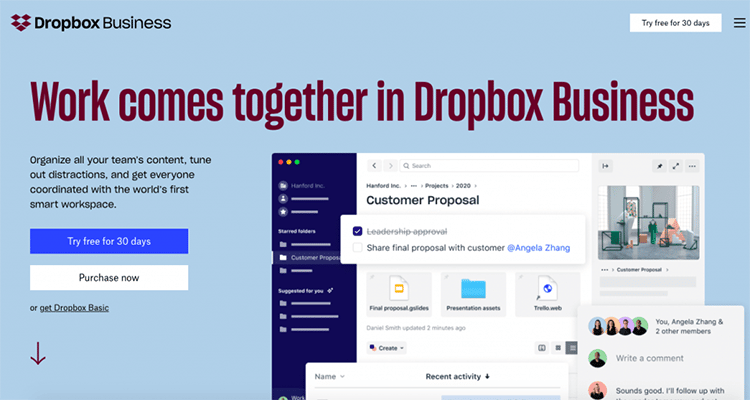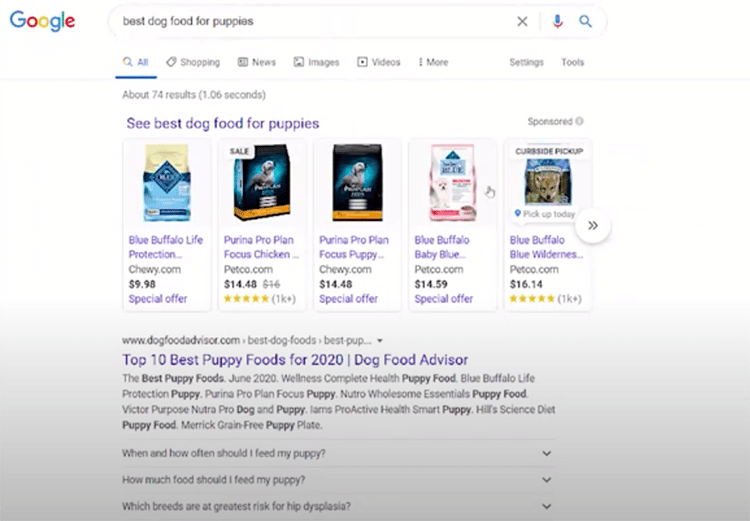It seems like such a simple question to answer—what is the difference between a blog and a website? I know, you veterans out there are like, “Ron, really? You really have to create this post?” I do. I have to create it because there are beginners out there who are trying to understand this stuff and I want to help them.
The truth is, I’m sure many of you veterans are guilty of using the two terms interchangeably. I definitely am, and I’m sure many of you are; however, they have some pretty drastic differences. In today’s post, I’m going to explain exactly what those differences are.
Let’s go ahead and get started.
WATCH THIS BLOG POST IN VIDEO FORMAT
Are Blogs and Websites the Same Thing?
Starting out, are blogs and websites the same thing? In theory, yes—but in practice, no.
Now, let me confuse you a little further here. You can have a website without a blog, but you can never have a blog without a website.
Why is that? Most of you are probably confused right now, so let me explain. Blogs, at their core, are a website. As I get further into the explanation here, you’ll come to understand it, I promise.
What is a Blog and How Does it Work?
A blog is an entire website or a place on a website where the business owners or the employees of a business get to share their thoughts, data, and findings on topics they feel they should write about.
A blog is basically a collection of different thoughts of an individual or individuals at a company, and it’s a place where people can take things from their head and put it out onto the internet by writing posts on it. Then, other people can find that information and that data.
At its core, that’s what a blog really is.
It’s just a collection of thoughts; it’s really not more complicated than that. The blog displays a collection of posts that are written by the employee or the employers or an individual. In some cases, it may also include info about a training program, business tips, etc.
The blog displays them in reverse chronological order. It’ll show the oldest one at the bottom and the newest one on top. People can browse and read all through that information, and If they want to, they can search by keyword through the blog posts to find topics that are relevant to them.
If you, for instance, needed financial advice and you were looking for a financial blog you could go to a Google and search keywords about your financial issues.
Let me show you an example of a blog in its truest form; I’ll show you exactly what a blog is, how it works, etc.All right, as you can see below, this is the homepage of the website you’re on right now. Who is that handsome guy? That’s me!

I have income reports on this website where you can see how much I’ve made through my business; I’ve been doing websites for about five to six years now. Speaking of that, I also have resources to help you start a blog, along with recommended tools. Click here if you’d like to check that out.
This blog is where I go to write my thoughts and put information out on the Web. People can find me on Google. That’s the idea.
At the top of this website you can see there are tabs labeled “Start Here,” and “Resources,” which drops down to “Start a Blog” and “Recommended Tools.” However, the blog is really the focus of my website.
So yeah, this is a blog, you guys. The main thing to understand about this is that I’m really the driver behind it. I’m the individual who is the face of the blog, in this particular case.
There is also a business behind it. It’s my own business, but there’s not a brick-and-mortar location. It’s just my own thing, and I have the content that I want to write about and I have myself representing it.
If you click on “Start Here” at the top of this page, you can read about me and the things that people need to know. That’s basically what this blog is for me; it’s a blog all about me.
This is a good example of what a blog is and what it does. In this case, it really pushes me as an authority in the whole online business space and helping people create their own blogs.
I’ve also got a free course to help you start a website.
On this blog, I write about all the different things I’ve done, all the different people I’ve helped, and the ways that I’ve helped them. Then people are able to take that information and use it at their leisure.
What Is a Website?
If this is a blog, then you’re probably like, “Okay, that’s great, Ron. What is a website?” A website is a collection of pages, and some of those pages can include a blog. Usually, blogs are within a website as a whole, but there are also stand-alone blogs.
For example, this is a blog on the One Hour Professor website. However, a lot of the times businesses have a blog inside of them and they have another core business as a whole.
They might have a blog, but it expands far beyond the limitations of the blog. They provide a lot of value in different ways, so let me show you some examples here.
First, we’ve got Amazon. We all know Amazon, so we should be familiar with this. They are an e-commerce platform, but did you know that they also have a blog? I actually didn’t know this. The point is, this is an e-commerce website at its core that has a blog component to it.

The website could also be a tool. For example, mortgagecalculator (dot) org doesn’t have a blog, but what they do have is a mortgage calculator tool. They provide this tool for people who come to visit their website.

If you have a blog, you can also put a tool onto it. For instance, you could put a mortgage calculator onto your blog if you wanted to do that. The point is, when it’s a website, it grows beyond just being a blog with someone like myself writing about what they’re passionate about.
It becomes something more, and mortgagecalculator.org is a really good example of that. This is a tool, and it doesn’t even have a blog component to it.
Next, websites can also be memberships. The Internet Marketing Association is just a good example of this. Surprisingly, they don’t have a blog.

Their primary intent with this website is to educate and to get people to join their membership, which is the Internet Marketing Association membership. They do have some resources, but they don’t actually have a blog. As a whole, their core business is really focused on membership.
Again, with a blog, you can eventually grow it and add a membership area. However, at its core, blogs don’t usually have memberships. Websites, on the other hand, sometimes do have something like this.
Next, websites can also become software, so Dropbox is a good example of that. Dropbox does have a blog. It’s included in the website itself, but, as a whole, Dropbox is software.

If you’re not familiar with it, it’s a place where you can go and store files and then quickly share files through the Internet. This software is actually hosted on the Internet so people can use it as they need it.
Of course, websites can also be social media, like Facebook. The idea is that a website is much more than a blog. It can be a lot of different tools, and a lot of different resources that can help people.

Now, I know a lot of people are thinking, “I don’t want to start a blog; I want to start a website. I’ll be stuck if I start a blog.”
The truth is, most websites start out as blogs. People create them, they start writing, and eventually, they add layers onto it, so keep that in mind.
Of course, there are platforms like Facebook that never focused on a blog, but a lot of times you’ll find that a lot of websites out there start out as blogs. They start small, and then they grow bigger as time goes on, and eventually, they become a full-blown authority website.
What Are Blogs Used For?
We’ve established what a blog is, but what are they used for? Businesses use them to showcase their expertise, or what their business can do.
If you look at any business, they’re doing it to try to get more customers. The idea is that showing all of their education will hopefully lead to more revenue. Obviously, it’s a business.
For example, I have created my blog to showcase my expertise. Yes, it’s also a business and there are business components to it, but what I’m really trying to do is showcase my expertise.
I’ve been doing this for a long time. I like sharing my story and I’m trying to help people create their own blog so they can grow them to the point where they can quit their full-time job. That’s my goal, and I really enjoy that.
Next, people had to have a blog just to educate people on certain topics or things that are important to them. Now, if you’re one of those individuals that is just starting out and you’re like, “I don’t know that I can educate and change the world with my blog, but what is it that I can do?”
You can share your voice with the world. This is a great reason to create a blog. Maybe you’re not connected to your friends or you don’t have a ton of friends or you’re looking for a way to share your voice with the world and give your perspective on things; that’s a great reason to have a blog, too.
There’s nothing wrong with that. It doesn’t have to be some huge, full-fledged business. It could just be something that you do to keep your sanity and share your thoughts on the Internet.
Also, some people will create a blog in the hopes of creating a business side to it that really focuses on reviewing services and products. There are a lot of these, but, if you go into Google and search “best ____ for ____,” then you’re going to see some really good examples of this.
As you can see below, I searched “best dog food for puppies.” This is a great example. At the top of the results page is dogfoodadvisor.com. This is a website focused 100% on dog food, which is pretty crazy.

They have product reviews, and when people click on one of their links and purchase something, this website will make some money.
Some people make a full-fledged business out of that as a blog. They never go beyond that, and that’s fine. Some people make really good livings off of this.
Another good example is using a blog to share hobbies and crafts. If you’re a DIY person who likes sewing, woodworking, etc., that’s another great place to have a blog because you can just share the projects you’re doing, share the things that you’re learning, and the people who enjoy that kind of stuff will probably establish themselves as a community around you.
Which Is Better—A Blog or a Website?
I personally think that a full-blown website is better than a blog, and in my portfolio of websites, they go beyond the blog and I add more to them; they go beyond an individual voice.
It opens up possibilities to get bigger, and that’s my jam. That’s what I like to do, but that doesn’t mean that’s what you have to do. I’m just an individual that likes to grow things and get big and make more money, but more difficult challenges come with that.
If you don’t want to do that, that’s fine; you could just create a blog. But, for me, I like websites because they can get bigger. You can open up new revenue streams. You can add tools and resources to help the community of people you’re trying to serve.
You can go beyond just writing informational blog posts and maybe some reviews, and you can add different tools and things to help them. It really expands the scope of a blog to a full business.
Should Beginners Make a Blog or a Website?
Now, I do want to say that almost every website starts as a blog, so should beginners make a blog or a website? My advice is to absolutely start a blog.
I will walk you through the whole process in 10 minutes. It’s super easy to do, but the thing to understand is that every website starts as a blog or most websites start as a blog.
There’s no need to go big in the beginning. You can just start really small, and as you start to grow over time and have proven that your blog is actually picking up and can be a real business, then you can then add more things to it to make it a full-blown website.
Just to give you a little backstory, that’s what I do. I start with a blog every time and then I’ll add more tools and make my blogs into full-blown websites that then generate a lot more revenue.
There’s no shame in starting a blog in the beginning. I think everyone should do it. It’s a smart way to do it because it’s simple; Rome wasn’t built in a day. It takes time, so you need to start small.
That’s it, you guys. I hope that this helps you understand the difference between a blog and a website. I know that most people use those terms interchangeably, but, technically, they shouldn’t be because they are two different entities.
